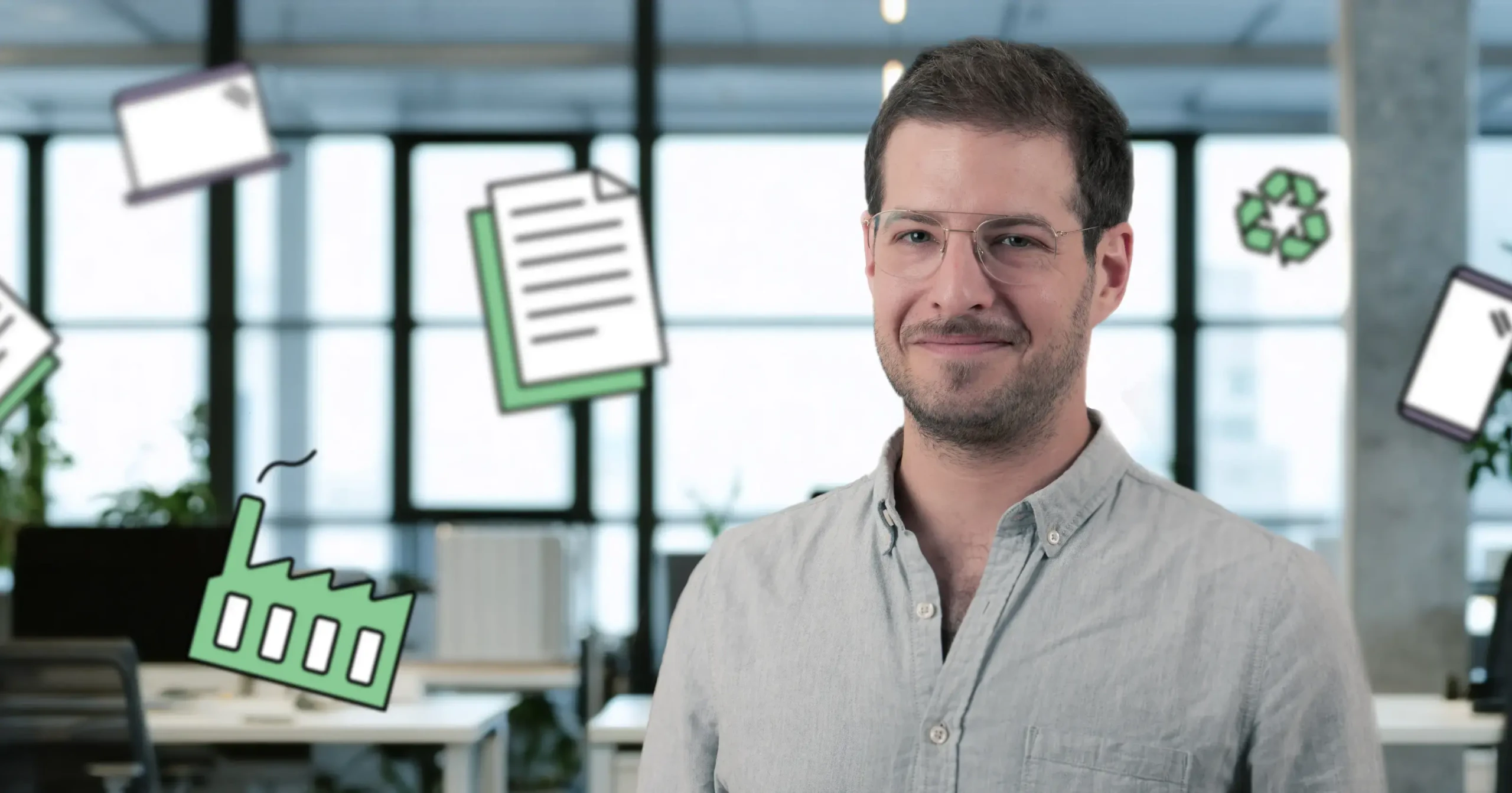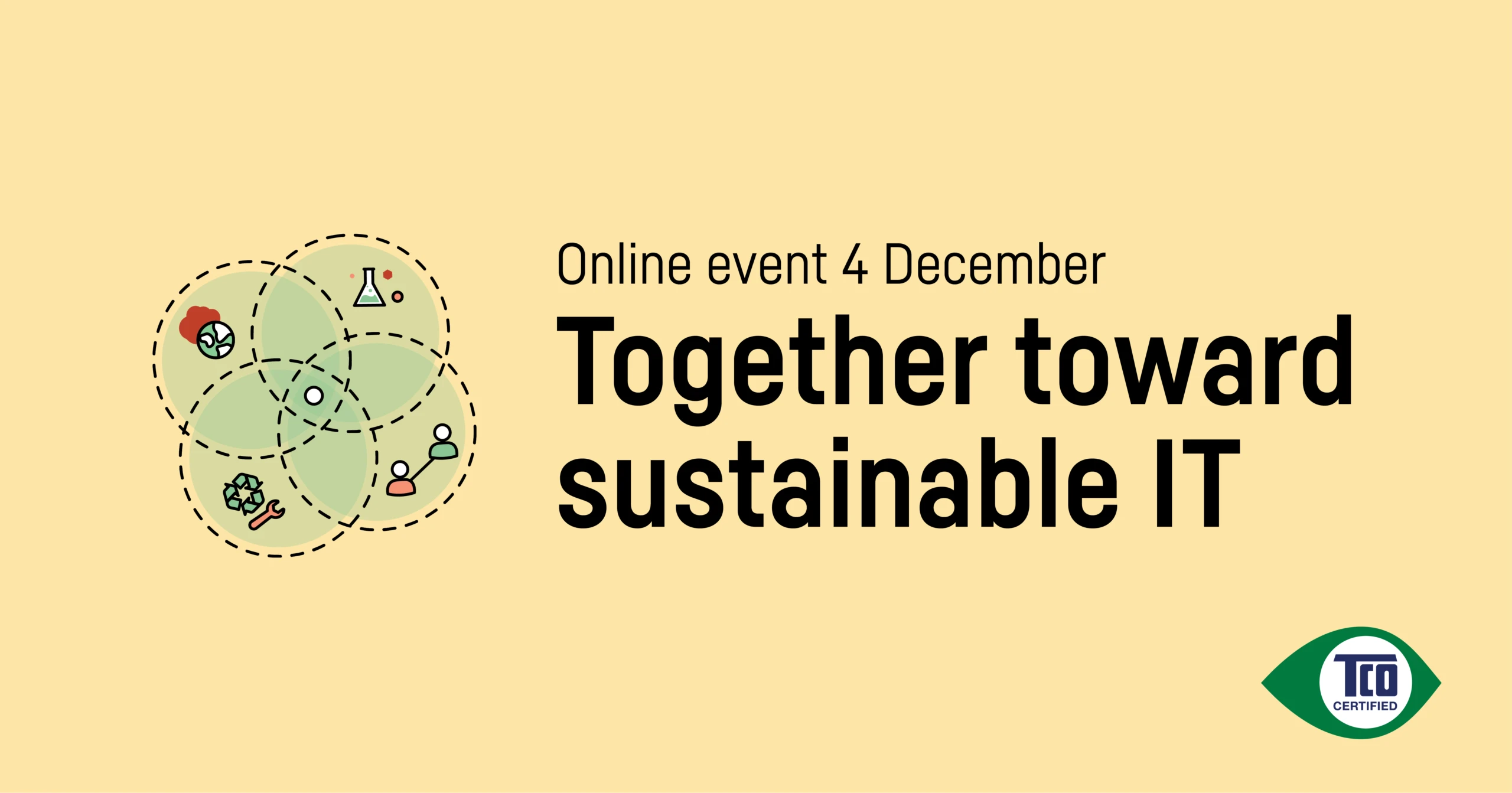Malmö City aims to be climate neutral by 2030 and has already worked with circular management of IT products for 10 years. Find out how!
Circularity is an enjoyable and exciting field because it demands a strong focus on our own consumption behaviors. So says Ulrika Svallingson, sustainability coordinator at Malmö City Council in southern Sweden. The city is aiming to be climate neutral by 2030 and has already worked with circular management of IT products for 10 years.
Ulrika started working at Malmö City Council’s procurement unit just over two years ago. She was appointed to the newly-created position of sustainability coordinator for social responsibility, which was introduced because the municipality wanted to get a comprehensive grasp of the social aspects of procurement and purchasing.
Malmö City Council has ambitious sustainability goals. Two years ago, the council decided that the UN’s Sustainable Development Goals should be reflected in local targets and form an integral part of local budget processes. The municipality works with Fairtrade City and participates in several local, national, and international networks related to sustainable development and the environment, including the EU’s Circular Public Procurement initiative that has participants from Sweden, Finland, Poland, Russia, Latvia, Denmark and the Netherlands.
Ulrika believes that circular issues are closely linked to both social and environmental sustainability, and that the municipality has considerable potential to make a real difference with its purchasing. The council works closely with its supplier, Atea, which provides sustainability expertise and solutions for the reuse of products. However, it is not enough to influence suppliers — to achieve circular management of purchased products, the municipality needs to focus on its own behaviors.
“Social and environmental aspects often go hand-in-hand and the circular mindset completes the picture.”
“Of course we can make our own demands and influence suppliers and other stakeholders, but in terms of circular economy issues, these put demands on us as an organization. It’s also about thinking intelligently about how we use the products we buy,” says Ulrika.
To promote circularity, the council purchases products with longer service lives and ensures that warranty periods are as long as possible. In the absence of warranties, nobody will repair products when necessary. The city council seeks to ensure that product use is optimized; for example, those working for the municipality for a limited period are given older computers than people who are expected to work for a longer period. Smartphones are provided with covers so they last longer. As much as possible, IT products are reused internally when they are insufficient for certain users but perhaps work perfectly well for someone else.
The municipality also works with collecting old IT equipment. If a device is still useable, all data on it is deleted so it can be resold to new users outside the council. Products that have reached the end of their service life are recycled. The aim is to collect all IT products used by the municipality. In 2019, a major initiative was organized for council employees. Searches of offices and storage areas revealed some 7,500 computers, smartphones and other IT products that could be collected and reused or recycled. Employees were also invited to seminars on the importance of reuse and how sustainability requirements can be included in procurements.
“This energized employees across the city and we received extremely positive feedback. It became really concrete when you saw the amounts of electronic waste that were collected outside city hall,” Ulrika says.
What is the key to achieving circular management of IT products?
“We’re a large organization with highly differentiated requirements and contexts. You need to know what your organization needs to be able to see what can be done better. This is why it’s incredibly important that functions and areas of expertise cooperate. At an early stage, we coordinate with our specialist sales people who know the market and know the technical limitations we work with. We also work closely with our IT coordinators throughout the city. They have extensive knowledge about our operational requirements, what we need and when we need it.”
To facilitate cooperation, the city council has launched a sustainability forum for IT products. This brings together employees and managers focusing on a variety of issues such as technology, communication, the environment, social issues and procurement, as well as municipality supplier, Atea. The group discusses sustainable IT use from a broadbased perspective — from specific needs in procurement processes, to how they could create behavioral changes that support circularity.
“The sustainability forum is extremely beneficial to our work. All these skill sets are needed to drive the IT issue forward because it is so multi-faceted. There is broad agreement in the group about the importance of sustainability,” explains Ulrika.
What has been most challenging?
“It’s been challenging to introduce new routines and processes because there are considerable conflicts of interest in IT, both internally and in the segment as a whole. We want products to last longer, but that may undermine profitability in the segment or be at odds with what’s most convenient for the organization. Sometimes, it’s easier and even cheaper to replace IT products frequently than it is to service and repair them.
“It’s sometimes also about how budgets are structured, that IT products have tended to be written off after a certain number of years and that warranties are only valid for fixed periods.”
Ulrika explains that it has been tough to grasp how the municipality’s behavior can promote circularity. Because individual buyers and employees have to change how they do things and re-evaluate their purchasing, Malmö City Council has had to work hard on its own structures and encourage everyone to pull together — to accept used products and to return products in a condition that makes it possible to use them in other contexts. It has been demanding, but has also worked to significantly create awareness around sustainable consumption and the sustainable use of resources. “Social and environmental aspects often go hand-in-hand and the circular mindset completes the picture.
By working internally with these issues, we hope to create awareness that behind every product there’s a person and an environment to consider.”
When Malmö City Council started work on sustainable and circular procurement back in 2010, it included IT products as a prioritized category,” Ulrika says, because “they have an immense impact on the environment and social sustainability”. The council uses the TCO Certified sustainability certification for the procurement of displays, notebook computers and all-in-one PCs.
Why did you choose to use TCO Certified?
“TCO Certified includes criteria that match our own. When we buy a product that’s certified, we know that these criteria have been met and that we don’t need to allocate resources into following up on these requirements. That’s invaluable to us,” Ulrika explains.
“On top of making it considerably easier for us to both make requirements and conduct follow-up, the certification helps us to accelerate the rate at which we move the market towards increased sustainability because we use the same requirements as other buyers. TCO Certified also contributes to greater transparency between buyers and suppliers. Another extremely important factor is that TCO Certified includes so many different sustainability aspects: circularity, chemicals, social issues, conflict minerals as well as ergonomics.
The council is currently drawing up clear guidelines for sustainable management of IT products within the municipality and promoting examples of best practice that are shared with IT coordinators and decision makers. The next step is to support the development of more sustainable smartphones. Progress in this area lags behind other IT products such as computers and displays, but by developing collaboration with suppliers and other stakeholders, Malmö City Council is taking an active role in taking this issue forward.
“It’s so exciting! We believe that there are many different approaches to achieve this, which might include our own purchasing patterns and attitudes, as well as options on upgrades, extended warranties and sustainability certifications,” Ulrika says.




